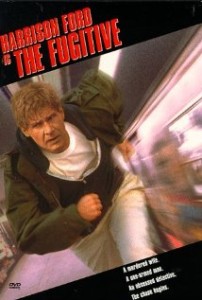 On Sunday, the front page of the print edition was caught in one of its own limitations. News of Edward Snowden’s departure from Hong Kong broke overnight in the U.S., too late for physical newspapers like ours to catch the news — you know, because there comes a time we actually have to declare the paper “done” each night and send it to press.
On Sunday, the front page of the print edition was caught in one of its own limitations. News of Edward Snowden’s departure from Hong Kong broke overnight in the U.S., too late for physical newspapers like ours to catch the news — you know, because there comes a time we actually have to declare the paper “done” each night and send it to press.
So by the time people opened up their Chronicles on Sunday morning, the headline “U.S. warns of delay in Snowden extradition” was hilariously out of date, considering that cable news and the Internet were already on fire with word of the whistleblower’s flight to Moscow.
I don’t have cable, so I didn’t find out about it until the following two tweets came in.
Perfect example of why newspapers are dying today: front page of @bozchron talks about U.S. pressure on Hong Kong to turn over Snoweden.
— Alan Hoffmann (@AlanHoffmann) June 23, 2013
Hoffman followed that with:
It’s not the fault of @bozchron obviously. That’s just the limitation based on their format. Still, it doesn’t cut it in this day and age.
— Alan Hoffmann (@AlanHoffmann) June 23, 2013
He’s right about the limitation, but I don’t think it’s an example of why newspapers are dying. There are plenty of other reasons why ink-by-the-barrel journalism is on the decline.
Or maybe it is an example and I just don’t think it should be. Why? Allow me to get on my high horse…
As I stood there cooking sausage Sunday morning, why did I need to know that Edward Snowden had left Hong Kong?
Newspapers are in the business of editorial judgement, deciding just what is news and what isn’t. And considering that Snowden, as of this writing, is still missing, it doesn’t seem like much of anything major has happened in the story. Yes, he sought asylum in Central America. Yes, he left Hong Kong. Yes, he was missing from an airplane. But how does that impact my day? How does knowing the location of the NSA’s biggest pain in the neck make my life better or make me a more informed citizen in a democracy?
I value the risk he’s taken in providing the press with confidential information, but until he’s arrested, killed or granted asylum, he’s just a lone guy on the run, a guy whose sole claim to importance is something he’s already done, not necessarily something he can yet do in the future.
Sure, [“experts”](http://www.today.com/news/expert-snowden-may-be-carrying-more-info-leak-6C10424006) and [members of Congress](http://www.today.com/news/expert-snowden-may-be-carrying-more-info-leak-6C10424006) speculate he’s got more information to reveal, but those stories make heavy use of the word “reportedly.” No one knows what Edward Snowden has. We only know what he’s already done, and that’s over.
 But the idea of a lone wolf on the run is a [powerful](http://www.imdb.com/title/tt0113957/?ref_=fn_al_tt_1), [powerful](http://www.imdb.com/title/tt0106977/?ref_=sr_1) [narrative](http://www.imdb.com/title/tt0086567/). We love a fugitive on the run with something important in his possession and/or an ax to grind makes a good story. And having experts and Congress members saying that he’s “still” dangerous lends the story a sense of urgency that I’m just not convinced is warranted.
But the idea of a lone wolf on the run is a [powerful](http://www.imdb.com/title/tt0113957/?ref_=fn_al_tt_1), [powerful](http://www.imdb.com/title/tt0106977/?ref_=sr_1) [narrative](http://www.imdb.com/title/tt0086567/). We love a fugitive on the run with something important in his possession and/or an ax to grind makes a good story. And having experts and Congress members saying that he’s “still” dangerous lends the story a sense of urgency that I’m just not convinced is warranted.
Meanwhile, the arc of the story in the international media has become about Snowden and not about the surveillance programs that are so disturbing to so many people. The thrilling escape stories merely distract from the issues that we should all be talking about — How comfortable are we with the liberties the government and its spies are taking with our liberties? How much freedom do we give away for a modicum more security?
A tenet I’ve held on to for some time tells me that when you notice everyone is looking at one thing, you should look somewhere else. I think that holds true here.
But I digress. I do that often, [and for good reason](http://www.goodreads.com/quotes/tag/digression).
In reality, yes, the printed paper was behind on the Snowden story. It was unavoidable, and instances like that are one reason why the Internet is an infinitely better place to get breaking news. Instances like that are also the reason why the editors attempt to pick longer-form stories with more analysis when possible, as they did for Sunday morning, to lessen the chance that overnight breaking news will render the story pointless.
It doesn’t always work, and it’s a limitation. But please, don’t let the flashiness of a breaking news banner on CNN distract from the real story, no matter how exciting the distraction (not digression, mind you) might be.
**Update:** I knew I couldn’t be the only one who felt this way. [Ron Fournier](http://www.nationaljournal.com/politics/why-i-don-t-care-about-edward-snowden-20130612) in the National Journal wrote just a couple weeks ago that
>Love him or hate him, we all owe Snowden our thanks for forcing upon the nation an important debate. But the debate shouldn’t be about him. It should be about the gnawing questions his actions raised from the shadows.
Make sure to read the Fournier post for a list of questions we should be considering beyond the whereabouts of Snowden.